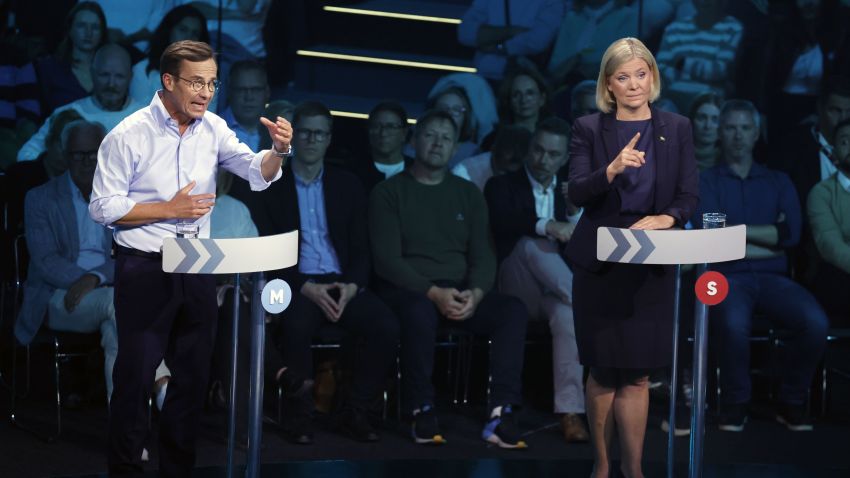Swedish voters head to the polls on Sunday, Sept. 11, with no clear sign of what the outcome will be, and recent polls showing the leading coalitions running neck-and-neck. Current Prime Minister Magdalena Andersson and her Social Democratic Party are seeking to hold onto power, but would need the help of three other parties—the Centre party, the Greens and the Left party to do so.
Alternatively, the liberal-conservative Moderate party, led by Ulf Kristersson, could conceivably lead the next government in coalition with a minor party, the Christian Democrats, but it would need the support, if not the participation, of the Liberals and the Sweden Democrats—an anti-immigration party with neo-Nazi roots. While the Sweden Democrats might emerge from the voting as the biggest party on the right, no other party is likely to enter into a coalition government that includes it, let alone one that it leads.
The general election comes at a time of global geopolitical and economic instability due to the war in Ukraine, which has caused a spike in energy prices and fueled inflation. The war has also had a major impact on Sweden’s foreign policy orientation. On May 18, Sweden’s ambassador to NATO, Axel Wernhoff, handed over the country’s application for membership to the alliance’s secretary-general, Jens Stoltenberg. The move marks a seismic shift in Sweden’s security policy, which for 200 years has been based on military non-alignment. The rapid U-turn of the governing Social Democratic party will, together with Finland’s similar decision, change the security landscape in Northern Europe.

